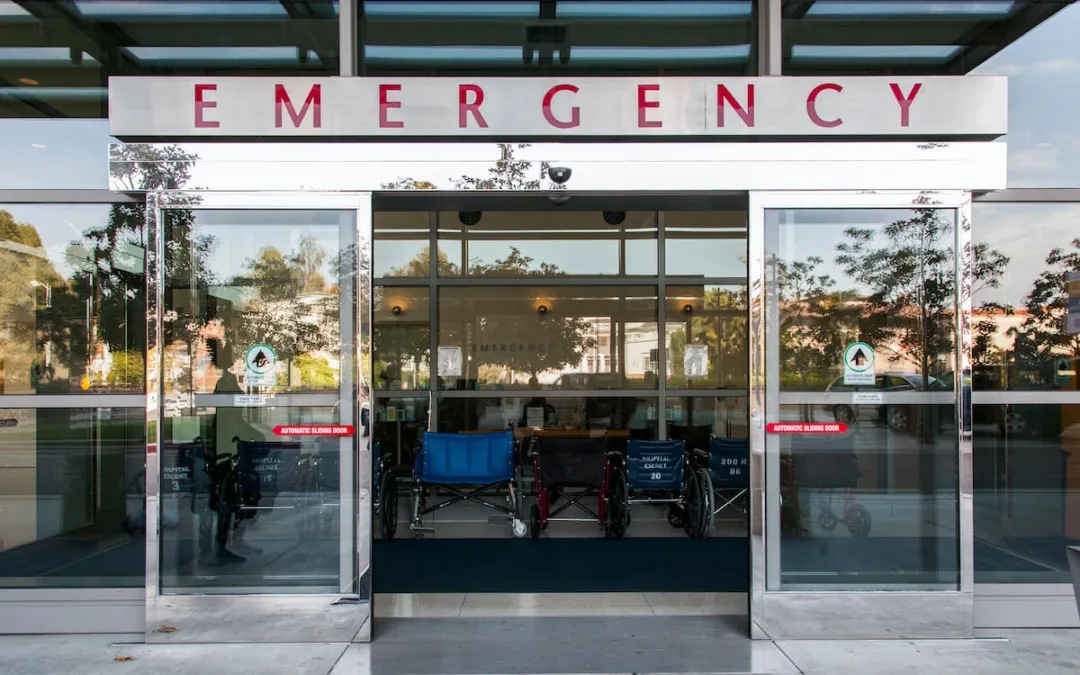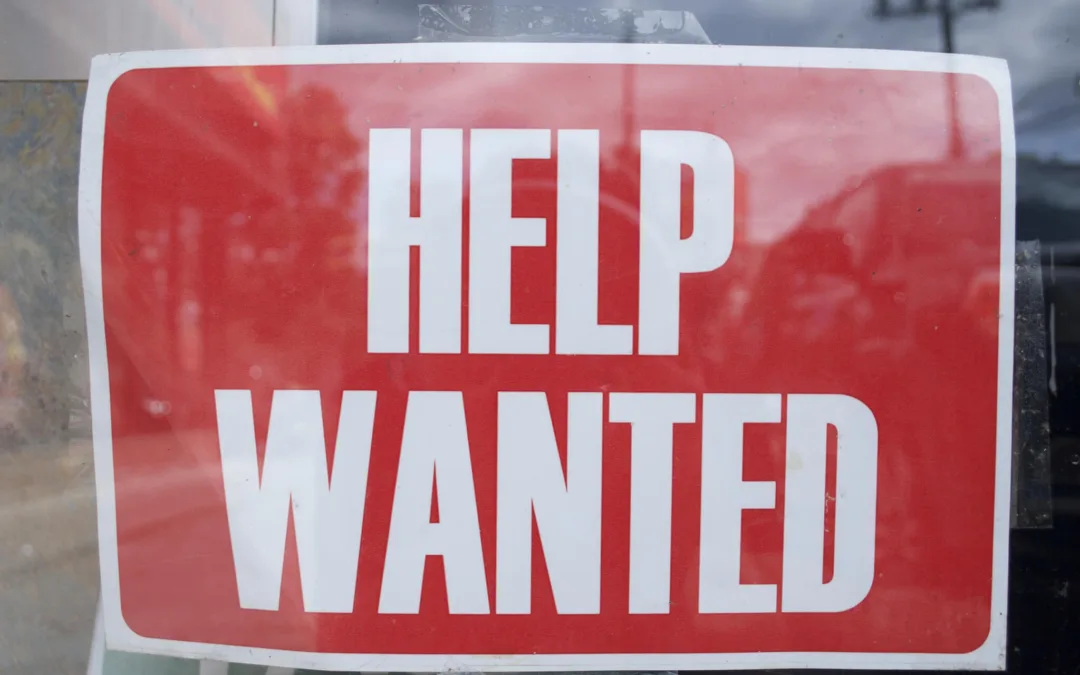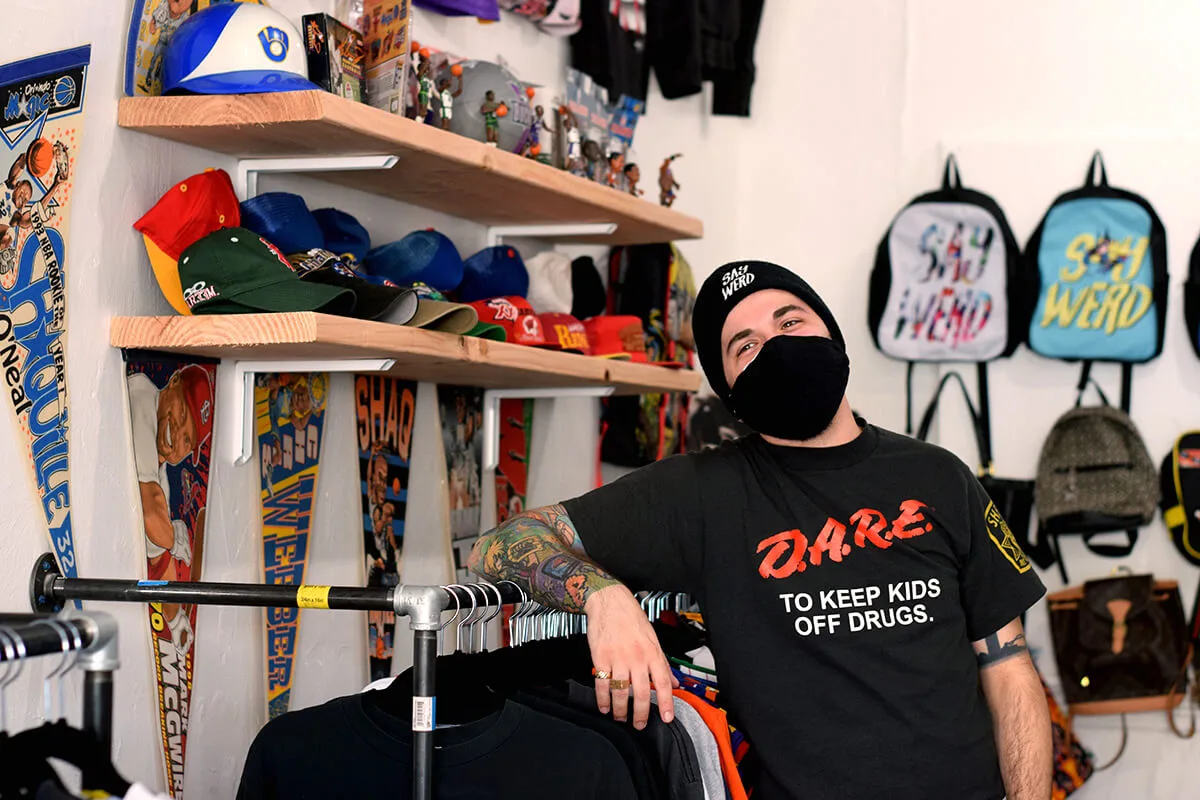
#image_title
#image_title
As Main Street businesses shutter across Wisconsin, a few have opened for the first time during the pandemic.
Benny Tralongo had wanted his own store for 18 years. A self-described lifelong “hustler,” Tralongo was working at a family grocery store and flipping snacks for a profit at school long before he started his own clothing line and vintage resale business, SayWerd, in 2017.
Energized by a successful business trip to Arizona in February, Tralongo returned to his hometown of Milwaukee to finally take the next step and bring SayWerd from a website to a storefront. But just as he secured a space to rent in Milwaukee’s bustling East Side, Wisconsin saw its first few diagnoses of coronavirus.
Since then, unemployment has soared in all 50 states as the pandemic squeezes the economy. More than a third of small Wisconsin businesses said they were at risk of closing if the statewide stay-home order, which has since been overturned, was extended three more months. Not all is lost, though. UpNorthNews spoke to two business owners who forged ahead and decided to open, even in the middle of a pandemic.
Tralongo signed his lease on March 2, when the virus had not yet reached Wisconsin, but he wouldn’t get the keys to the storefront until April 1. Shortly after he signed, the bars and restaurants closed. A week after that — seven days before Tralongo got the keys — Gov. Tony Evers issued the Safer at Home order to fight the spread of coronavirus.
“It was really, really tricky, really hard — mentally more so than anything else,” Tralongo, 28, said. “Because outside of getting married and having my kids, this was supposed to be the happiest time, the happiest day of my life — getting the store and moving in April 1.
“At first I was like, ‘Damn, this sucks,’” he said. “But then I was like, ‘I guess there’s no rush.’”
So Tralongo opened up the SayWerd shop in early May for private appointments and is hoping for a grand opening later this year once final operational permits — greatly delayed due to the virus — come in from the city.
Across the state, experienced chef William Goss had plans since January to open Agave 2 GoGo, a satellite takeout-focused location of his successful Tex Mex restaurant Agave Kitchen in downtown Hudson. Agave 2 GoGo is located on the city’s eastern outskirts, near an interstate exit, perfect to draw business from a nearby truck stop.
Goss said coronavirus actually sped up his plans for Agave 2 GoGo, which opened May 11. He also didn’t find it to be more of a challenge to open than any of his other restaurants.
“Because of the shutdown and it being focused on to-go, it just kind of fit,” Goss said. “Where the restaurant world is going, is to-go.”
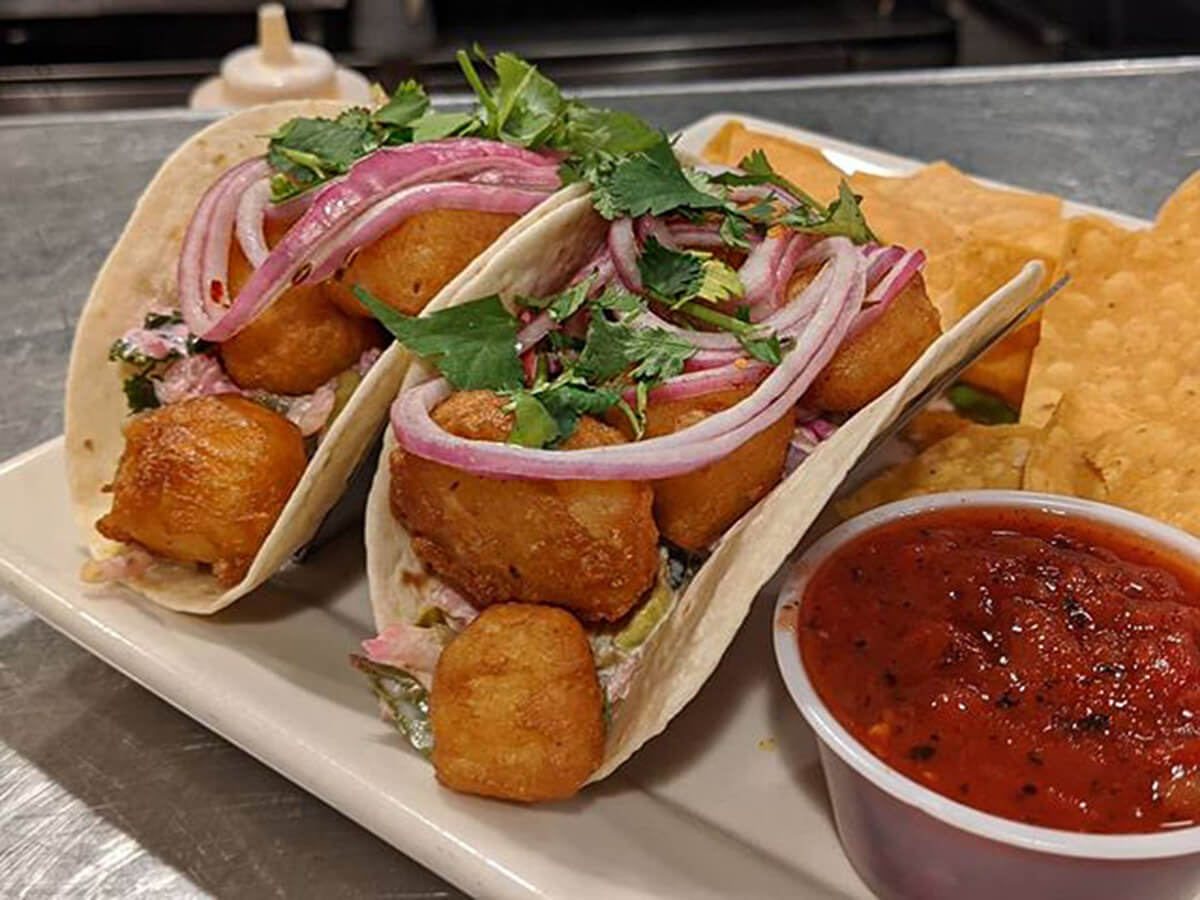
Goss said his biggest frustration has been with the patchwork approach the country has taken to fighting the pandemic. Because Wisconsin is now open — most communities without any restrictions whatsoever — Minnesotans have been flooding Hudson, Goss said.
While the Minnestoans are good for business, it also means Goss has to think creatively to keep his staff and customers safe. But he wishes there were some sort of enforceable standards, at least at the county level, to provide better guidance.
“The whole pandemic has gotten politicized, which has just made it even harder. And that piece will stick around until at least the election in November,” Goss said, noting that the virus could be even worse by then, as many experts predict a more severe second wave.
Business at SayWerd has also been good, Tralongo said. Early media coverage, an existing, supportive fanbase on social media, and a steady stream of private appointments have helped Tralongo pay rent. But he said he is still concerned the state is opening too soon (Milwaukee remains under a stay-home order, but it is threatened by a lawsuit).
“I think about health, that everybody needs to be healthy and safe,” he said. “But at the same time. Now I’ve got two rents. I have a house and a store and bills and rent, and I need to be getting money.”
Tralongo, like Goss, said it was “scary” that experts are predicting a more severe second wave, casting a shroud of uncertainty over the businesses. He said the poor, back-and-forth leadership from the Trump administration, conflicts between Evers and state Republicans, and disinformation spread on social media have already made the pandemic worse than it should have been.
“When I signed the lease on March 2, I didn’t think it was going to be to this extent,” Tralongo said. “I don’t think many people did. To say it’s one person’s fault is a little bit extreme, but do I blame the whole government and the administration? Oh yeah, totally.”
Goss and Tralongo are optimistic for their businesses’ fortunes moving forward. Both say an apparent desire for people to help their local shops has buoyed them.
“I hope that this pandemic has taught people to support your local businesses, be it restaurant, retail, manufacturing, whatever,” Goss said. “It’s just one of those situations you gotta stay positive and stay fluid.”
Politics

Eric Hovde’s company exposed workers to dangerous chemicals, OSHA reports say
A Madison-based real estate company run by Wisconsin US Senate candidate Eric Hovde settled with the Occupational Safety and Health Administration...
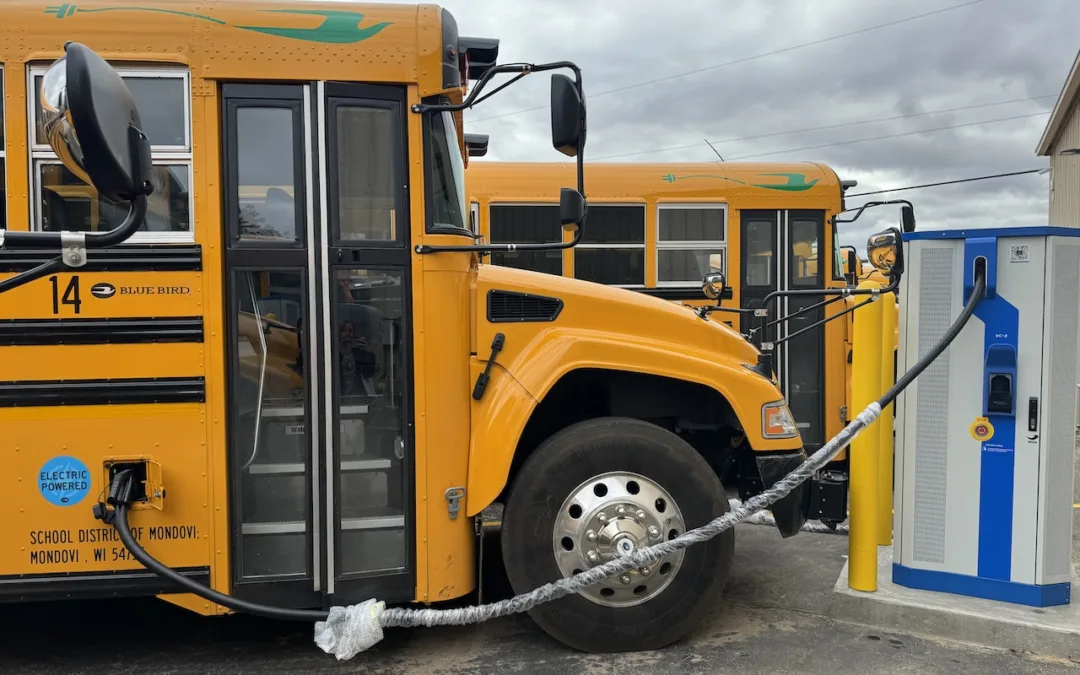
Plugged in: How one Wisconsin school bus driver likes his new electric bus
Electric school buses are gradually being rolled out across the state. They’re still big and yellow, but they’re not loud and don’t smell like...
Local News

Stop and smell these native Wisconsin flowers this Earth Day
Spring has sprung — and here in Wisconsin, the signs are everywhere! From warmer weather and longer days to birds returning to your backyard trees....

Your guide to the 2024 Blue Ox Music Festival in Eau Claire
Eau Claire and art go hand in hand. The city is home to a multitude of sculptures, murals, and music events — including several annual showcases,...



